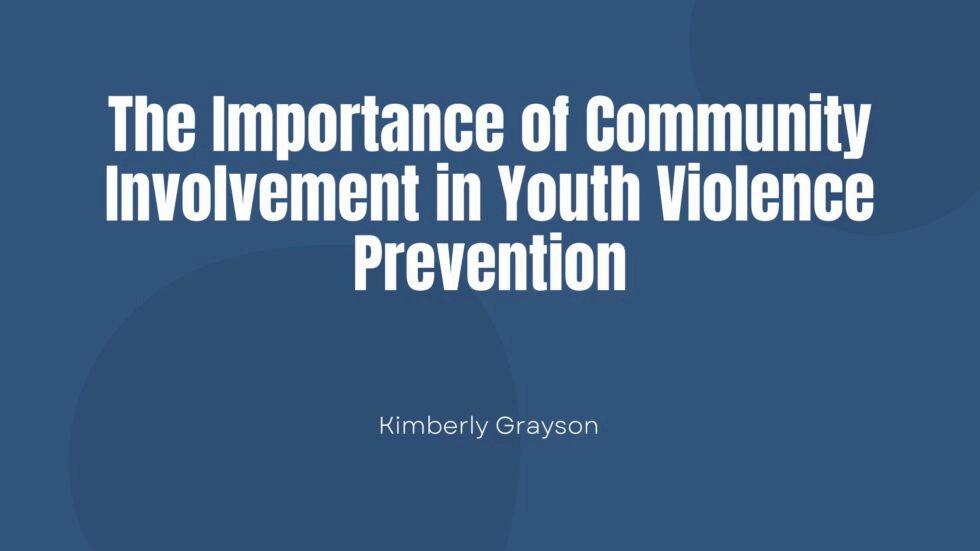
Youth violence poses a significant threat to communities globally, causing widespread harm to individuals, families, and societies. However, proactive community involvement is pivotal in effectively addressing and preventing youth violence. By actively engaging with young people and implementing targeted interventions, communities can foster safer environments and empower youth to make positive choices
Constructive Engagement Opportunities
One of the fundamental strategies in youth violence prevention involves providing young people with opportunities for constructive engagement. This encompasses a range of activities such as after-school programs, sports initiatives, artistic endeavors, and mentorship opportunities Through participation in these activities, youth acquire valuable skills, cultivate positive relationships, and develop a sense of belonging within their community. Moreover, these programs offer a supportive environment where young individuals can learn conflict resolution skills and cultivate resilience to avoid violent behaviors.
Identification of Risk Factors and Early Intervention
Community involvement enables the identification of risk factors and the implementation of early intervention strategies. By collaborating closely with schools, law enforcement agencies, healthcare providers, and social service organizations, communities can identify at-risk youth and provide them with the necessary support and resources. This may involve offering counseling services, educational programs, or access to mental health resources to address underlying issues such as trauma, substance abuse, or family conflict.
Promotion of Collaboration and Partnership
Moreover, community involvement fosters collaboration and partnership among diverse stakeholders When community members, organizations, and institutions join forces, they can pool their resources, expertise, and knowledge to develop comprehensive and sustainable solutions to youth violence. By leveraging the community’s collective strengths, initiatives can be more effectively implemented and tailored to meet the specific needs of the youth population
Empowerment Through Education and Advocacy
Education and advocacy are essential components of community involvement in youth violence prevention. By raising awareness about the root causes and consequences of youth violence, communities can mobilize support for preventive measures and policy changes Additionally, empowering young people to advocate for themselves and their peers can promote positive social change and create a culture of non-violence within the community.
Conclusion
In conclusion, community involvement is a cornerstone in youth violence prevention efforts Communities can create safer environments where young people can thrive by providing avenues for constructive engagement, identifying risk factors, promoting collaboration, and empowering through education and advocacy. Investing in our youth and fostering collective action can build stronger, healthier communities for generations to come
